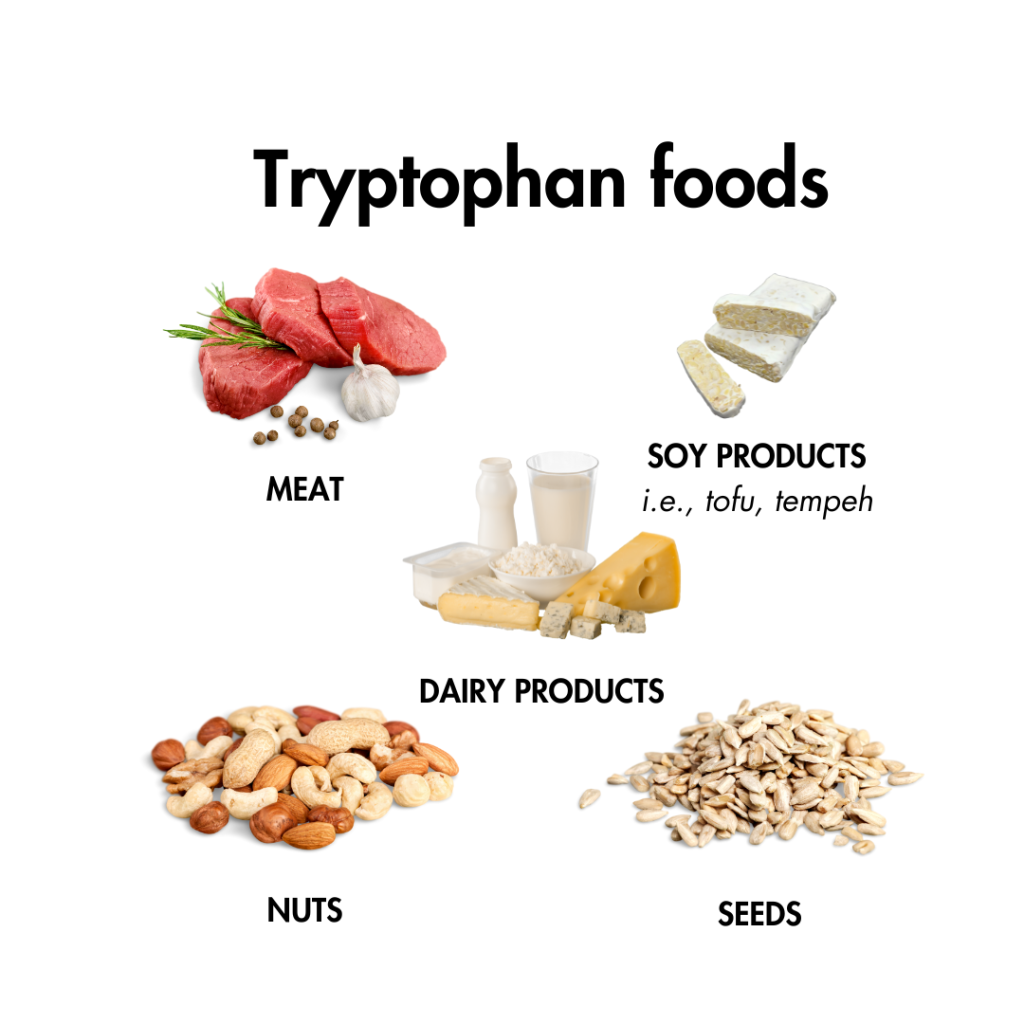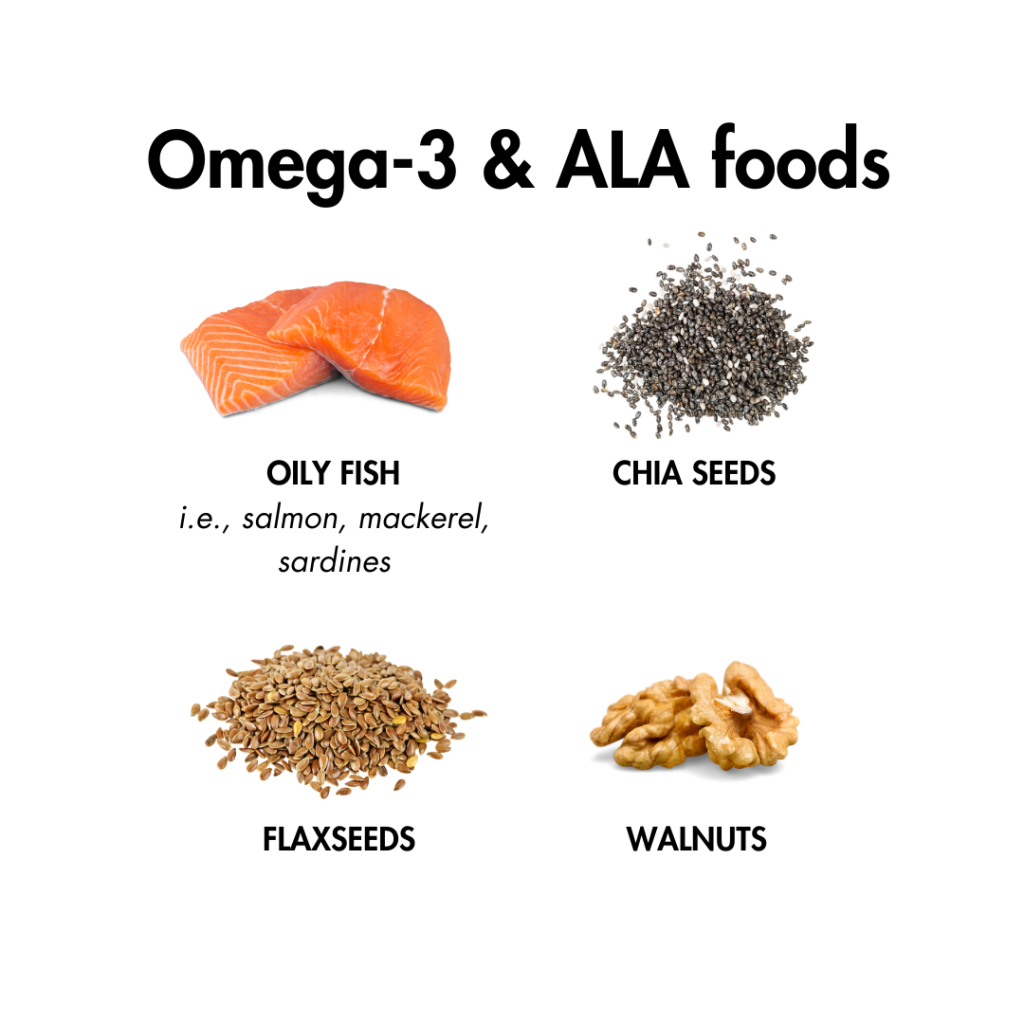
Winter has landed and the seasonal blues can hit hard at this time of year. With this in mind, we’ve put together our best advice to naturally boost your mood and keep your brain in tip top shape over the wintertime.
There is plenty you can do to lift your spirits as the temperature and sunlight hours drop. The way we spend our time, the activities we do and the people we see have a big impact on the way we feel! Alongside this, the foods we eat have a key influence on the way we feel too.
Our top diet and lifestyle tips
- Incorporating nutrient-rich whole foods in your diet will help to boost your serotonin levels and keep your spirits high. Examples of foods containing tryptophan, fibre (including prebiotic fibres), probiotics and omega-3 fats will be covered below.
- Move your body! Exercise has significant benefits for your mental health. Move your body in a way that feels best for you; a habit you enjoy is one that will be much easier to sustain.
- Rest and sleep are an important piece of the puzzle. Listen to your bodies signals and prioritise getting good quality sleep.
- Eat YUMMY foods. While it’s handy to understand the nutrients that can really benefit our mood, also make sure to consume foods that you enjoy. A nourishing and mood-boosting diet includes wholefoods AND soul foods – it’s all about balance.
- Spend your energy where it’s truly going to benefit you. It is no secret that during winter we can feel drained and tired so spend time with people that pick your mood up.
- Keep warm. Most of the time, being cold is enough to make your mood pretty miserable! So, turn on that AC and rug up.
- Celebrate small wins! Pat yourself on the back more often – you are doing great, make sure you recognise that.
What is serotonin?
Serotonin is a hormone which has many roles in the body. It’s commonly found in the central nervous system but is also found in the gastrointestinal, endocrine and cardiovascular systems (Omar et al, 2023). This means serotonin impacts not only our mood but our appetite, stress levels, sleep, and perception of pain too (Omar et al, 2023). Low serotonin levels in the brain are thought to play a part in ongoing low mood or depression.
The good news is getting exposure to sunlight and increasing exercise can naturally help to boost serotonin production. The foods we eat may also have a role in naturally boosting our serotonin levels. Serotonin is made from one of the essential amino acids (building blocks of protein), tryptophan, which we can obtain through various foods.

Gut-brain axis
Believe or not, the health of our gut can play a key role in our mental health. The gut produces 90% of the body’s serotonin which means our gut doesn’t just digest food, it helps to guide our emotions too (Akram, 2023). Although research is still emerging, many studies are showing that certain components of food have a role in supporting our mental health.
The gut-brain axis is like a two-way communication highway where the gut and brain interact with each other (Clapp, 2017). The population of bacteria in the gut are known as the gut microbiome (Thursby, 2017). They help to break down food, turning it into nutrients for our body to use. The variety of the bacteria in the gut can indicate the health of our microbiome. A more diverse microbiome is likely to positively affect our mental health through the gut-brain axis and is likely to be protective through a range of mechanisms (Valle, 2023).
Dietary fibre is found in plant foods like fruit, vegetables, legumes, nuts, seeds and whole grains and the recommended amount of fibre is 25g for women and 30g for men per day. When we digest dietary fibre, our gut microbes produce molecules called short chain fatty acids which have anti-inflammatory properties. Fibres with prebiotic properties are thought to support the growth of beneficial bacteria in the gut and are found in certain types of fruits, vegetables, nuts, seeds and most legumes and whole grains (Davani-Davari, 2019). Fibre needs to absorb fluid in your gut, so it is important that you’re drinking enough water.
Probiotics are live bacteria that potentially support a healthy gut when eaten in adequate amounts (National Institutes of Health, n.d.). Many fermented foods like kefir, yoghurt, sourdough, miso and tempeh contain probiotics because they are added, or they naturally occur in the food. Some research has shown that probiotics may help to support better mood. However, more research is needed to understand this relationship, and the types of bacteria that are most helpful and the source (i.e. whether a supplement or food form is best).
At the end of the day, when we have an overall healthy diet that includes plenty of fluids, incorporates fibre-rich foods and minimises highly processed foods we have the best chance of supporting a healthy mood.



Should I eat more fish?
Polyunsaturated fatty acids (PUFAs) are a type of dietary fat which has positive benefits in reducing inflammation and are essential for brain health.
Omega-3s are a subclass of PUFAs which are particularly important for the brain. Studies have shown that deficiencies in omega-3 in the diet can increase risk of depression, dementia, bipolar and ADHD, so keeping omega-3 consumption high during these colder times, and any time, could be a great way to keep mood high (Lange, 2020). Omega-3s naturally occur in oily fish such as salmon, mackerel and sardines, making these a good source! Omega-3s can also be obtained through other foods that are rich in alpha-linolenic acid (ALA). ALA is then converted into Eicosapentaenoic acid (EPA) and Docosahexaenoic acid (DHA) which are types of omega-3s. ALA can be found in foods such as chia seeds, flaxseeds and walnuts. However, this conversion of ALA to EPA and DHA is not a very efficient process and therefore, obtaining omega-3s from oily fish should be prioritised where possible (West, 2019).
PUFAs are also abundant in the Mediterranean diet, and come from olive oil, salmon, nuts and seeds. This diet is also rich in wholegrains, legumes, fruits and vegetables, all of which support an overall healthy diet. There is some evidence to suggest that the Mediterranean dietary pattern could be beneficial for brain health due to these nutrients.

Resources
If you are struggling, please know that it is ok to not be ok. Reach out to friends, family, your family doctor or any of the resources below.
Lifeline
- 0800 543 354
- Free text 4357 (HELP)
Youthline
- 0800 376 633
- Free text 234
Free call or text
Samaritans
- 0800 726 666
Suicide Crisis Helpline
- 0508 828 865 (0508 TAUTOKO)
0800 What’s up?
- 0800 942 8787
- Chat online: whatsup.co.nz
- Hours: Mon-Sun 11am-11pm
Just a Thought resources
Other great resources from Mental Health Foundation
References
Akram, N. (2023). Exploring the serotonin-probiotics-gut health axis: A review of current evidence and potential mechanisms. https://doi.org/10.1002/fsn3.3826
Clapp, M et al. (2017). Gut microbiota’s effect on mental health: The gut-brain axis. Clin Pract. 7(4). 10.4081/cp.2017.987
Davani-Davari, D. et al (2019). Prebiotics: Definition, Types, Sources, Mechanisms, and Clinical Applications. 8(3). 10.3390/foods8030092
Lange, KW. (2020). Omega-3 fatty acids and mental health. Global Health Journal. 4(1). https://doi.org/10.1016/j.glohj.2020.01.004
Michalak, A., Mosinska, P., Fichna, J. (2016). Polyunsaturated Fatty Acids and Their Derivatives: Therapeutic Value for Inflammatory, Functional Gastrointestinal Disorders, and Colorectal Cancer. Front Pharmacol. 459(7). 10.3389/fphar.2016.00459
National Institutes of Health. (n.d). Probiotics. Probiotics – Health Professional Fact Sheet (nih.gov)
Omar, A., Moore, M, J., Khalili, Y, A. (2023). Physiology, Serotonin. StatPearls Publishing. Physiology, Serotonin – StatPearls – NCBI Bookshelf (nih.gov)
Puri, S., Shaheen, M., Grover, B. (2023). Nutrition and cognitive health: A life course approach. Front Public Health. 11. 10.3389/fpubh.2023.1023907
Thursby, E., Juge, N. (2017). Introduction to the human gut microbiota. Biochem J. 474(11). 10.1042/BCJ20160510
Valle, CGD., et al. (2023). Association between gut microbiota and psychiatric disorders: a systematic review. Sec. Health Psychology. 11. https://doi.org/10.3389/fpsyg.2023.1215674
West, A, L., Miles, E, A., Lillycrop, K, A., Han, L., Sayanova, O., Napier, J., Calder, P, C., Burdge, G, C. (2019). Postprandial incorporation of EPA and DHA from transgenic Camelina sativa oil into blood lipids is equivalent to that from fish oil in healthy humans. 121(11). 10.1017/S0007114519000825


